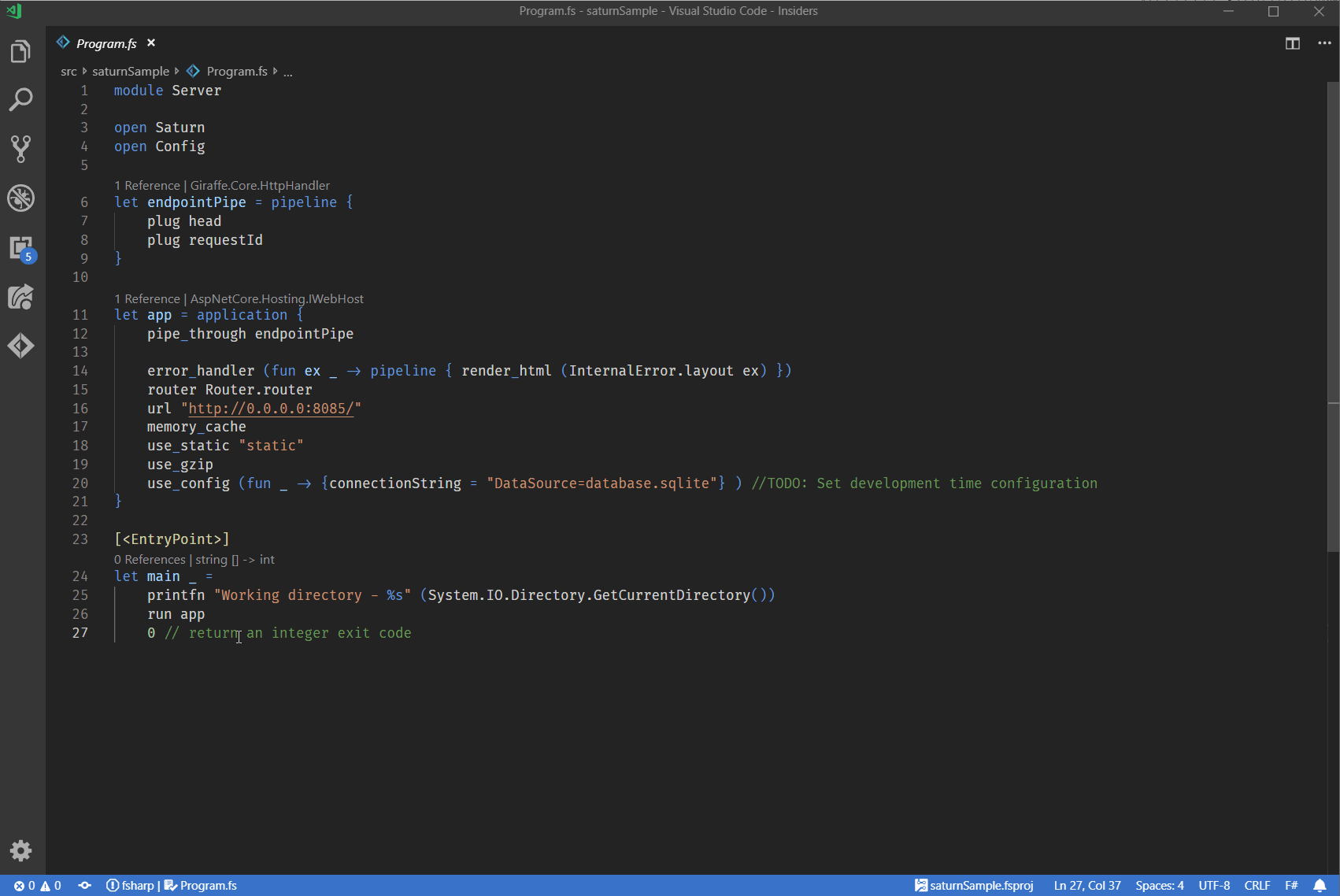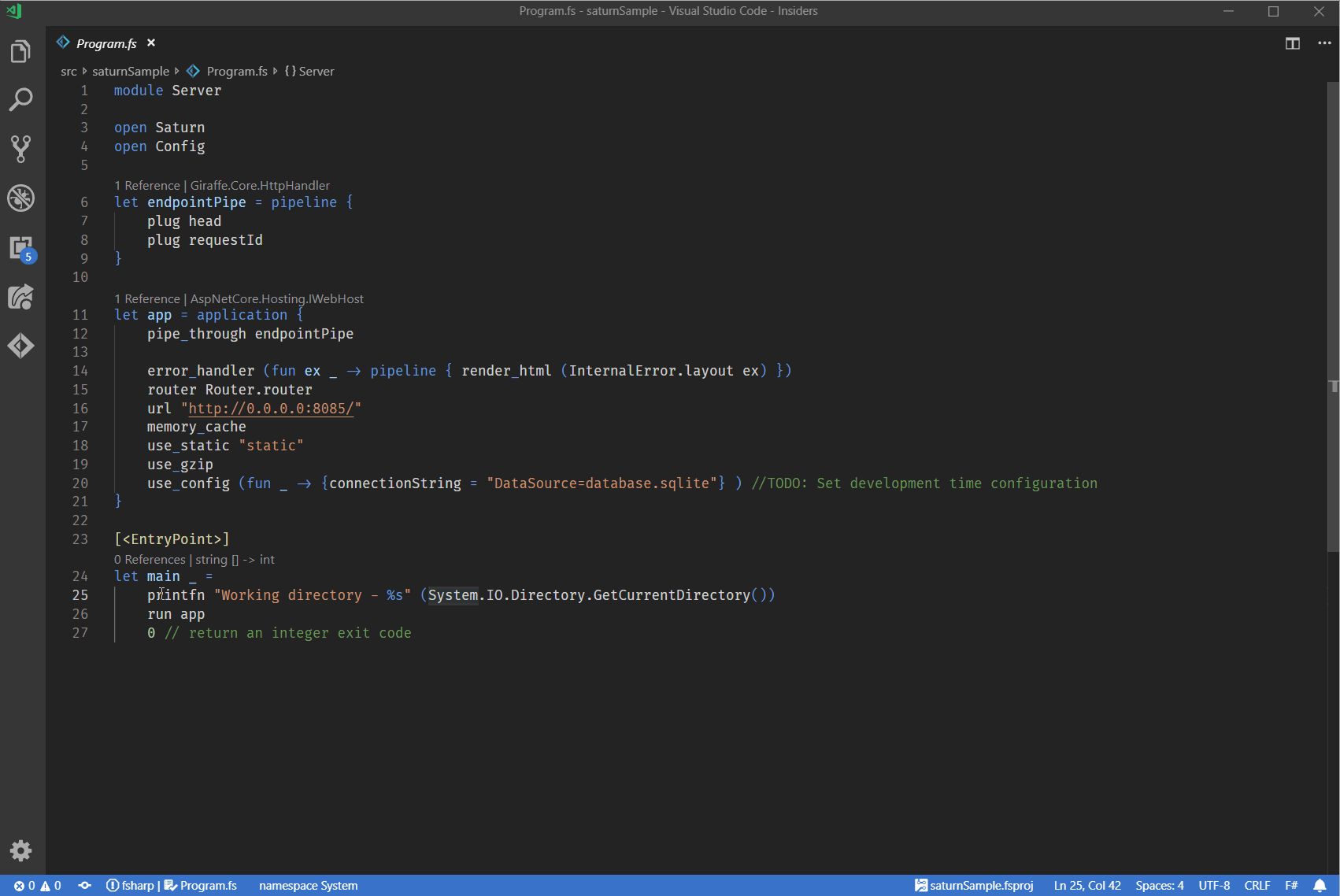
Ionide — Introducing Info Panel
Ionide — Introducing Info Panel
Today, I’d like to talk about a new feature called the Info Panel that has been released in Ionide 3.36. For me personally, it’s one of the most exciting features we’ve introduced in Ionide so far. Hopefully, it will help F# developers as nicely as placing function signatures in CodeLenses or fast cross-project navigation powered by background symbol caches.
The problem of API exploration
One of the biggest problems some software developers have is remembering all the functions, classes, and namespaces that are available in a vast set of dependencies they use, or even that are present in their code bases. Some IDEs try to help with that problem via tooltips or IntelliSense.
However, these solutions suffer from two problems. First, the visual help they have is temporary. Second, tooltips can sometimes feel intrusive. It’s sometimes quite common to have something pop up and hide code below it, and if you move your cursor the information changes are disappears.. Also, tooltips or additional IntelliSense popups are typically small — the IDE has to play a tricky game of tightrope where it needs to display useful information, but do so subtly enough not to feel intrusive.
One alternative to an Info Panel exists in Visual Studio today, called the Object Browser. It’s a separate window that presents a tree view of references to a project where you can dive into constructs as-represented in their compiled form. Although this is helpful for exploring references, it’s conceptually detached from your codebase. Imagine a situation when you’re reading your code and notice a function call that you don’t understand — it’s not as easy to use Object Browser as just hover over the symbol — you need to click through library content, to find appropriate class or function. And if you want to move to another function next line, you need to do the same.
Rich API exploration
The Info Panel is inspired by XCode’s Quick Info Inspector. Thanks a lot to Dave Thomas for familiarizing me with this feature. BTW, you can support Dave — one of the best F# OSS hackers — on his new Patron page!

Info Panel is an attempt to bridge those two ways of presenting information. It combines the interactivity of tooltips with the less intrusive UI of a separate display panel. The panel auto-updates as you navigate through your code, but you can also navigate information via the panel, independently of the code you’re looking at.
By opening the Info Panel in VSCode, you can display rich information about the
current symbol under your caret, such as its signature, nicely formatted XML
documentation, its members, properties or functions, used attributes,
implemented interfaces. Because it’s a separate panel, the information is
persisted and doesn’t overlap with your code window. There is enough space to
provide quite a lot of nicely formatted information. It also supports link
navigation. For example, if somewhere in the documentation DateTime is
present, you can click on it, and move to the documentation about the DateTime
type. The Info Panel uses a combination of data from the compiler service and
XML documentation, so it works for both external dependencies and your own code.

Info Panel may update its content on the cursor move or on the hover (it’s configurable) but also supports locking — the state in which the content won’t be updated by normal action but only by click link or forcing update with a command. This means that you can keep information that is interesting for you while moving through a code base.
One of the additional options is complete replacing tooltips — when it’s activated you won’t see normal tooltips when you put the mouse over the symbol, only Info Panel will be updated (feature suggested by Brian Mitchell).
Check all possible options for Info Panel in VSCode — they all start with
FSharp.infoPanelprefix
What’s next?
Info Panel is in pretty good shape today however there are still a couple more features that I want to add in a future:
- Handling namespaces — currently we don’t display any information for namespaces.
- Navigation history — I think it would be nice if go back/forward commands were implemented
- Navigation breadcrumb — breadcrumb UX in VSCode is pretty nice for navigating through the code base, I can imagine having something like that for the documentation exploration. (suggested by Nino Floris)
- More information for the symbols — we could potentially add even more information such as inheritance hierarchies, declaring entities etc.
- Investigate how Info Panel can be used for replacing/enhancing IntelliSense
If you’d be interested in helping there are two places where you can start:
- If you’d want to improve generated documentation take a look here
- If you’d want to improve UX around the feature take a look here
Summing up
I really hope you will like this feature — from my point of view, it fits into Ionide design of finding good ways to provide as much useful information as possible to the users — such as Code Lenses or rich tooltips we have right now. Try it out, and let us know what you think!
You can support Ionide development on *Open Collective.*
